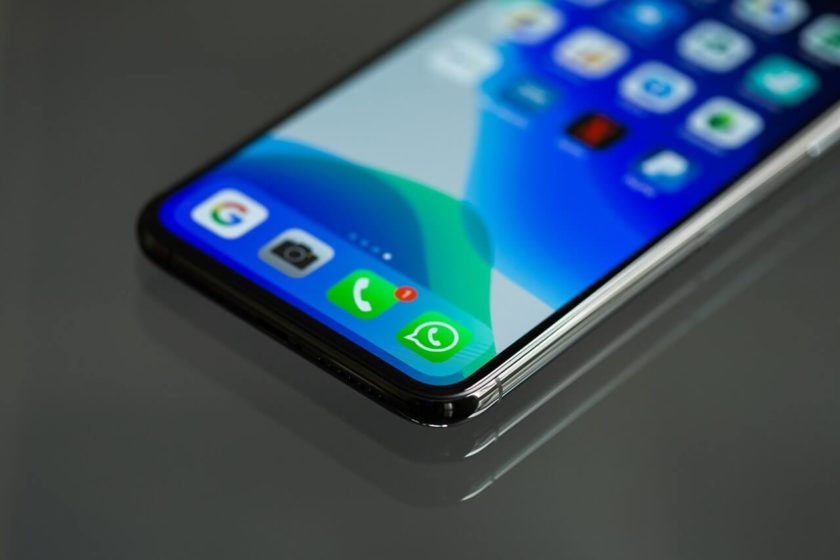WhatsApp is a popular mobile messaging app that was created in 2009. It has steadily grown to become the most popular messaging app in the world. WhatsApp’s popularity has come with a number of interesting facts, including some you may not know about:
- Jan Koum and Brian Acton founded WhatsApp. Both were former employees of Yahoo! Inc.
- WhatsApp is based in Mountain View, California.
- The name “WhatsApp” comes from the phrase “What’s up?”
- When WhatsApp was unveiled in 2009, it acquired one million users in the first month
- By September 2010, WhatsApp had 5 million users. The user base reached 8 million mark as the app hits its first anniversary.
- WhatsApp was sold to Facebook for $ 22 billion, the biggest ever buyout of a venture-backed startup in the Silicon Valley
- Founders quit Facebook, leaving millions of dollars worth of unvested shares Acton in 2017 ($900 million) and Koum in 2018 ($400 million).
- WhatsApp valued Privacy of its users, while Facebook has a very different approach towards user privacy
With rampant reports of WhatsApp linked scams, user privacy has come under the scanner. Let’s see how scams are being attempted upon WhatsApp users.

How to identify a scam attempt??
To identify a potential scam, you should look for the following signs:
- If a proposed deal sounds too good to be true, Exit immediately!
- Ever got a call from a company you never contacted? Have you ever received WhatsApp messages from sellers (of a product or service) you didn’t sign up for? 9 out of 10 times, it is a fraud
- Strangers trying to get comfy with your personal details? Do not answer any personal questions about your income, finances, insurance, spouse, etc.
- Your recipient is trying to pressure you into a response or a payment.
- You’ve been asked to pay with an unusual method. Do not accept those forms of payment.
- Supplier/seller provides vague contact details
- Misspellings and grammar mistakes can raise red flags about the credibility
Types of scams – what they are and how to avoid them
Scams are fraudulent practices that take advantage of people’s vulnerabilities. Scams can take many forms, including email, phone, and online scams.

WhatsApp whack-a-mole scam
A WhatsApp whack-a-mole scam is a type of fraud that involves tricking people into believing they have won something expensive to get them to pay a fee or provide sensitive personal information. The term “whack-a-mole” comes from the arcade game where players use a mallet to hit moles as they continue to pop up out of their holes.
WhatsApp Voucher Scam
The WhatsApp voucher scam is an example of a most common modern-day scam. It is an attempt to trick people into paying for a product they may not even want or need. The scammer will contact the victim and say that they have a voucher for their favorite brand and offer it at a discounted price. The victim will then pay the scammer but never receive anything in return.
WhatsApp Gold
WhatsApp Gold scam has been around for quite a while and of late seems to be on the rise again. People will send you a link to install WhatsApp Gold App. The app is supposed to be a “Celebrity” version of the common WhatsApp App. This app promises to provide users with a range of features, including live video streaming and the ability to send pictures that are encrypted. What the app actually does is upload all your contacts and media (like personal images and videos) to a remote server where they can be compromised. Perhaps, the best way to avoid these scams is to download an official version of WhatsApp from their website, Apple App Store, or Google Play Store.
Impersonation Fraud
The fraudster will contact you with a fake profile of a person you already know. They will pose to be under a stressful situation and request your personal information. The fraudster may also ask for money to help them with some emergency. The best way to verify the person in question is to call your contact via phone or over a video call.
Six Digit Code
WhatsApp is a popular messaging app, but it is also a potential target for hackers. The Six Digit Code scam is where hackers gain access to your account and change your phone number to the one they control. They will ask you for the six-digit code text that you may receive from WhatsApp. This is not a new scam, but it’s on the rise again, and there are some things you can do to protect yourself. The best way to protect yourself against this attack is by enabling encryption and never clicking on links in messages you don’t trust. It is also very important not to share your phone number with anyone who doesn’t need it.
Supermarket scam
The WhatsApp supermarket scam is a fraud that tricks people into believing that they have won a prize. The scammers ask the victims to send them money to claim the prize. The scammer will send the victim an image of a supermarket receipt with a QR code and say that it is for some lottery or giveaway. The QR code will link to the scammers’ WhatsApp profile, asking for personal information (such as phone number) and banking information (such as bank account).

Future of WhatsApp Security & How it’s Evolving with the Advancements in Technology
In the past, WhatsApp was a very secure messaging app. No one could intercept messages and read them. But with the advancements in technology, it is now possible for hackers to intercept and read messages on Whatsapp. In hands of Facebook, the future of Whatsapp security is still unclear. However, the app receives continuous updates that help to keep it one step ahead of hackers. The new features will protect user privacy and avoid hacking attempts. WhatsApp started using a combination of two-factor authentication, push notifications, and disappearing messages to prevent hacking attempts.
How to Report Scammers on WhatsApp & Stop Them Before They Ruin Your Life
The first time we got a message from a spammer, we were in school. It was an advertisement for a weight loss product. We had never seen this person before, so we just ignored it. But the messages kept coming in, and they were getting more and more aggressive. They would call us names and insult us about our bodies. The one that made us really mad said that we needed to lose weight because our thighs are too fat for our height. They kept sending links to download a certain app from the App Store. We reported the app to the Store, but it didn’t help. The app was still there in the store, and people were still downloading it! So if you get messages from someone you don’t know on WhatsApp or any other social media platform, please report them as soon as possible before they ruin anyone else’s life.
What You Need To Know About Sending Money On Whatsapp
Sending money on WhatsApp is a convenient way to transfer money to someone without meeting them in person. But, it can be dangerous if you don’t know what you’re doing. Here are some things that you should know before sending money on Whatsapp:
- You’ll need to have a debit card that is linked with your bank account
- You’ll need to have the recipient’s phone number and their bank account number
- When sending the money, make sure that there’s enough balance in your bank account and that you’re not sending it to someone who doesn’t have a debit card
- Never send money without getting an address or a photo of the person to who you are sending it to
- Always start by sending minimal amounts of money and build up your trust over time
- Don’t worry if the recipient hasn’t received the money in a few days, their bank might be holding it for them
Last but not the least, if you are uncomfortable with the risk of sending money via WhatsApp, it’s best to use PayPal or Venmo.
loading...
loading...

